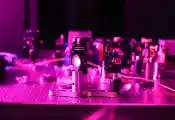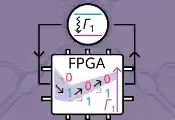Diraq and UNSW Pioneering Scalable Hold-Spin Qubits
November 06, 2024 -- Diraq have been working with team of researchers at UNSW Sydney to demonstrate hole-spin qubits using industry standard silicon manufacturing processes.
This innovation could enable ultra-fast quantum processing while remaining compatible with standard silicon chip manufacturing, paving the way for practical, large-scale quantum computers. Semiconductor holes are positively charged ‘quasiparticle’ that arise due to the absence of an electron. They share similar properties with electrons, but possess an opposite charge and exhibit a different spin. Holes have distinctive physical properties that could potentially allow spin qubits to operate at higher speeds and lower power consumption.
By refining hole-spin qubits, the team aims to make quantum operations more efficient and commercially viable. In comparing the experimental and simulated results the team were able to control the qubit and demonstrated qubit operation speeds as fast as a few nanoseconds, which is several orders of magnitude faster than equivalent electron qubits.
“This collaboration supports Diraq’s goal of creating the world’s first commercial quantum computer using silicon-chip based technology, a platform that is cost efficient, energy efficient, and due to its compact size has a small infrastructure footprint,” says Prof. Dzurak.
“Production of these semiconductor chips in commercial foundries, such as IMEC is where the economies of scale really make sense - as you can make many millions of transistors on a square centimetre of silicon, ensuring the power of quantum will be accessible, sustainable and a viable option for commercial applications.”
The work was a collaboration between Diraq and UNSW Sydney researchers including Dr. S.Liles, Prof. Alexander Hamilton, with findings recently published in Nature Communications paper: A singlet-triplet hole-spin qubit in MOS silicon.




































